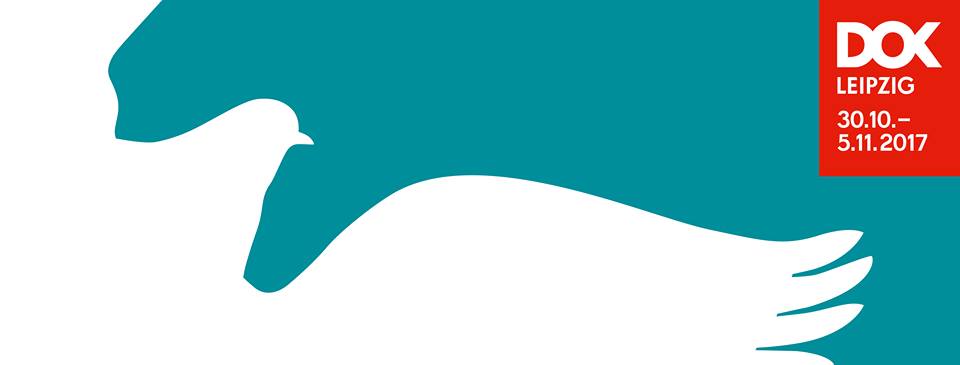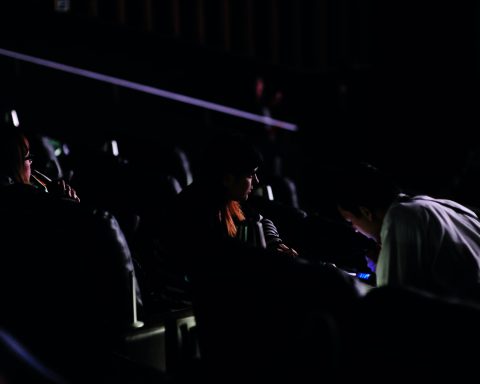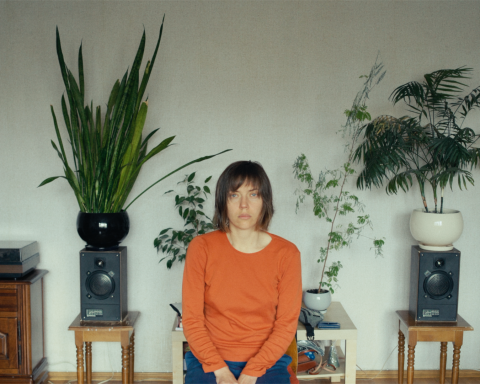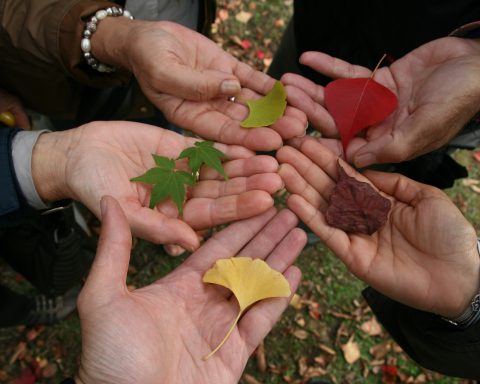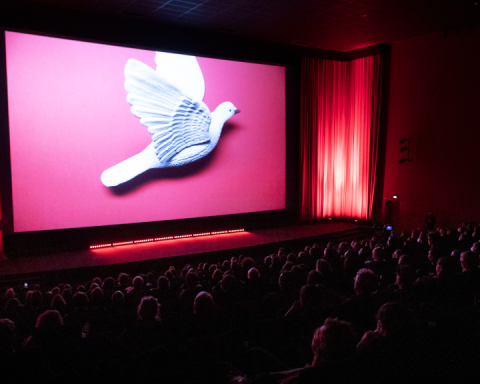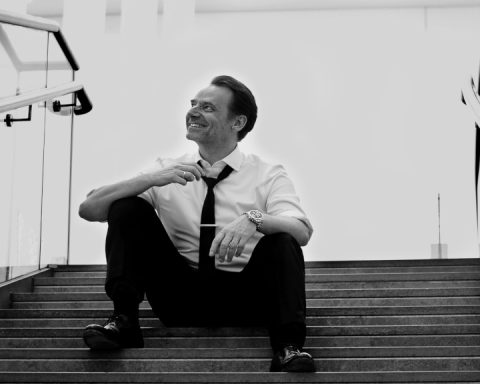Coming of age, or growing up, has different meanings and time periods for different people. So does upheaval: It can happen on a macro or micro level. It can involve one internal universe or many internal and external ones, and have many physical and emotional dimensions.
“Youth” and “maturity” cannot be reduced to age groups, and these days can arrive very early or very late when measured against social expectations. Upheaval can, of course, catalyze the process.
When I recently spoke with DOK Leipzig organizers, they told me young people’s presence and voice in the film festival have been growing. They pointed out that a lot of exciting documentary and animated movies shown at the international fest focus on young people’s issues.
So I’ve previewed some youth-centric films to be shown at this year’s DOK to see what all the hype is about. The films – some rawer than others – often feel like personal works in their treatment (at least in terms of issues close to the director’s own heart) and also do not shy away from taking risks in topics as well as techniques.
A couple of the movies here are related to the tumultuous zeitgeist in the area of the world their protagonists are located, while others deal with issues that could be happening anywhere in the world at the moment.
One example of the former is the feature-length Forgotten (Ridha Tlili, Tunisia): It follows a group of male activists steeped into an economically depressed life in Tunisia following the Arab Spring. It’s unclear to me from the movie how much of this existence is self-imposed due to their impetus to speak out for the ranks of the unemployed.
The politically active men, disillusioned with broken promises from the revolution, are forced to return to the basics, so to speak. They rely on bonfires, nature and each other among their empty stores and dilapidated homes. You see especially the young activists being eager to fight the system or otherwise eager to flee to an idealized Europe (Germany, above all).
A couple of the film protagonists find alternative interests to try out. Others keep getting in trouble with the local authorities. The absence of women from the film is conspicuous (we hear about someone having had a fight with his “foreign girlfriend,” but that’s about it). They also seem to be somehow cut off from their families – in short, we don’t hear much about interactions beyond their male buddy circle.
Another documentary that follows a group of people coming of age is Genderblend (Sophie Dros, Netherlands). However, its theme – “gender benders” – is quite different and less dependent on a certain national climate – I would say it depends more on a wider normative process. In Holland and elsewhere, people who don’t fit or decide between accepted gender images run into uncomfortable social situations, although some places and cultural contexts do afford them the opportunity to be themselves more than others. The subjects interviewed for this documentary in Holland give several accounts of prejudice, experience it even during the filmed interactions, and express being bothered by people’s reactions to various extents. (Spoiler: Being black and a gender bender makes it even harder.)
Their courageous coming of age and facing up to society is intensely inspiring, with struggles seemingly every time they leave their house. This multidimensional, highly technically polished film is not just “fly on the wall,” even having a couple of special effects and making its interviewees actively reflect on their self-definition and -positioning along the gender scale. It is beautifully shot, and at the same time, I found it hard to tell how much is spontaneous.
[spacer height=”20px”]
Meanwhile, the 10-minute animated documentary Tailor (Calí dos Anjos, Brazil) is told from the perspective of young Brazilian transsexuals, with vivid colors and dancing lines. One of the subjects says: “Contemporary masculinity fits in a little tube of synthetic hormones.” In their case, looking like the gender they identify with is very important – outward appearance in general is very important in this society, and a lot of education is still needed on transgenderism. (Here, too, being black on top of gender non-conformant further complicates matters.) But overall, I’d say a hopeful tone permeates the film.
From young people’s sexual identity, we move to attempts to hang on to the playfulness of childhood while achieving a sense of purpose and group identity. Hobbyhorse Revolution (Selma Vilhunen, Finland) brings us along for a ride with a diverse group of Finnish girls who share a passion for “horses” made of broomsticks and stuffed animals. I think this feature-length film does a good job of balancing “fly on the wall” (just being there) with technical masterfulness, and the girls seem to be acting naturally. I also like the filmmaker’s videoclip-like use of music; the girls must’ve gotten a kick out of that.
The girls craft their own hobbyhorses and others’, compete in obstacle courses, train other racers, and shoot video chronicles of their hobbyhorse life. They turn their hobby into a fantasy world where they are riding real horses across the woods and racetracks, escaping the cutthroat reality of their other social interactions. The hobbyhorse girls appear to be very nice and supportive towards each other, amid the upheavals of adolescence catalyzing their coming of age. This is a sort of therapy for them.
The protagonists both embrace their passion and find themselves embarrassed when it’s exposed to friends outside their group – they think these people wouldn’t understand or appreciate it, and they have even been violently bullied. Regardless, the adults running the competitions, where the girls display impressive athletic skills and are judged on various criteria, seem to have no trouble going along with their game. I had no idea this was a movement; the film made me discover a totally new scene to me.
And then there are the films on family, as an aspect intimately related with coming of age.
In Farewell Essay (Macarena Albalustri, Argentina), the death of the young protagonist’s cat – her companion since childhood – stirs up emotions related to the death of her mother 10 years earlier. The protagonist directs herself, and makes her relatives and friends of her mother into characters and interview subjects, sometimes hilariously staging them and keeping the footage as part of this experimental documentary.
This feels and sort of also looks like a home movie, with other home movies within it as the director frantically searches for personal footage capturing her mother’s movements, her life, rather than still photos. Her ultimate goal is to distill images and memories down to a concrete moment in which her mother may have expressed her final goodbye. Whatever the outcome of her personal quest may be, she has certainly discovered film as a medium of expression, release and catharsis.
[spacer height=”20px”]
Movement is often present on another docu journey with a home movie feel to it, but also technical sophistication – this one starring grandmas and their grandsons. The aptly named Granny Project (Bálint Révész, Hungary) seeks to make sense of the troubling World War II-related legacy three young men carry. Facing this legacy head-on, or dissecting it, is part of their coming of age.
One of the friends is Hungarian (the director), the other two German and English, respectively, with the plot unfolding in three languages as they have deep one-on-one chats with their grandmothers. The grannies’ stories have fascinating, tender, humorous as well as horrible aspects, and we get to see many of their layers as human beings. Their grandsons take them on a road trip (aka walk along interviews) to some places where important events from their history happened, and it’s quite impressive how much detail they’re able to call up from memory.
The Hungarian granny survived Dachau concentration camp, and remembers life as a Jew under the Nazis with candor, pragmatism, and not without humor (e.g. making up rhymes about a German soldier who looked like Gary Cooper). The German granny had been a student and a dancer during Nazi Germany and recalls, not entirely without fondness, the fluttering of the Nazi flag and singing their anthem in school, as she associates the moment with a bit of a carefree childhood – until the devastating impacts of the regime and war hit her family. We find out from a letter and chats that the English granny had a girly crush on pre-war Hitler but then became a spy and decoder for the Allies, her work helping lead to lethal strikes against the enemy – it haunts her to this day how her whole office was able to rejoice over shooting down planes.
It’s also fascinating to watch how the grandsons relate to each other, to their own grandmas and to the other grandmas, as the road trip progresses and more revelations come out; and, of course, how the grandmas relate to each other amid their heavy emotional baggage having been on different sides of the war. Overall, I found the movie to be a winning combo of micro and macro level events, personal and historical significance, and the tenderness and harshness of life and reality, in a highly personal approach mixed with a highly professional level of filmmaking. It was the movie that most deeply touched me out of all these.
The funny, sexual taboo-defying Manivald (Chintis Lundgren, Estonia / Croatia / Canada) served as comic relief for me. The short animated film stars a 33-year-old fox who still lives with his controlling mother. She routinely micromanages his desires and activities, until a sexy plumber – a ripped, well-endowed wolf – parachutes into their lives and throws a wrench into their relationship. They are both attracted to him. Will the wolf be Manivald’s ticket to freedom, new depths of drama, or both?
It can be said that DOK Leipzig itself has come of age, at a mature 60, after surviving upheavals in its corner of the world.
This brings me to the country of Georgia, which has also undergone upheavals over recent decades and a (lasting) transition out of communist rule. Besides actively trying (and succeeding) to attract international filmmakers, the country has had a renowned and acclaimed film industry itself. DOK Leipzig picked Georgia as the “Country Focus” for the fest’s 60th edition – based, according to the fest’s director, on young Georgian filmmakers’ ability to draw from the artistry and solid techniques acquired from the Soviet filmmaking tradition while innovating and coming of age on their own.
Among the documentaries shown at DOK is When the Earth Seems to Be Light, a joint Georgia / Germany production by directors Salome Machaidze, Tamuna Karumidze and David Meskhi. The 80-minute film focuses on young people in Georgia, more specifically skateboarders, temporarily soaring above ruins from the Soviet times. But then you see them having to return to reality. You get a sense of the tumult around them via protests in the streets and TV footage of violence, and a sense of their wanting to numb their pain through alcohol and doing mischief.
One of my favorite scenes in the movie features the guys throwing Molotov cocktails against a wall, apparently just for the hell of it. Another features one of the guys using a syringe as a makeshift device to tattoo his skin. The skates here seem not to be as central or transcendental as the hobbyhorse for the Finnish girls – I see them more as a vehicle of adrenaline and for seeking a feeling of freedom – and the protagonists in this film do have other hobbies. Also, although they do face a bit of an economically depressed situation as youths in a period of transition nationally, they are not as isolated as the guys in Tunisia (there is even a girl among the Georgian skaters).
With that said, this documentary does strike me as rather specific to place, as well. I feel that one needs to be familiar with the Georgian context to be able to better relate to the protagonists and perhaps even to the story line itself. A story arc was not really clear to me, and the narrative thread got a bit lost among the many devices used besides following the youths as they go skateboarding: TV clips, vignettes of rap performances and old buildings and swimming in pools, and an interviewer often asking questions on-screen about various subjects.
[spacer height=”20px”]
Despite a variety of approaches and environments, I’ve found the theme recurring in all these films to be the creation of resilient strategies and courage to cope with the social, economic, political and personal challenges at hand. Such challenges disproportionately affect people willing to fight for their identity and ideals – or for the ideal film.
I would say the main leitmotif among the subjects in the films concerns maturing or finding one’s true self, whatever obstacles surround one’s universe. On the other side of the camera, it seems to be about coming of age or consolidating their voices as professional filmmakers in the process.
